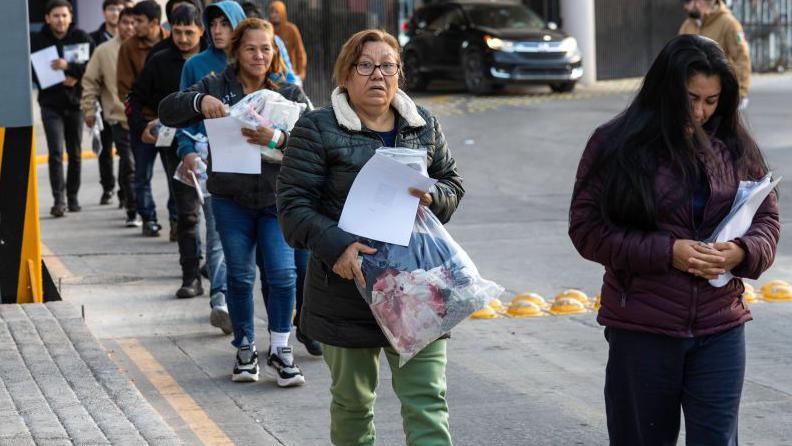Judge blocks Trump's plan to end US birthright citizenship
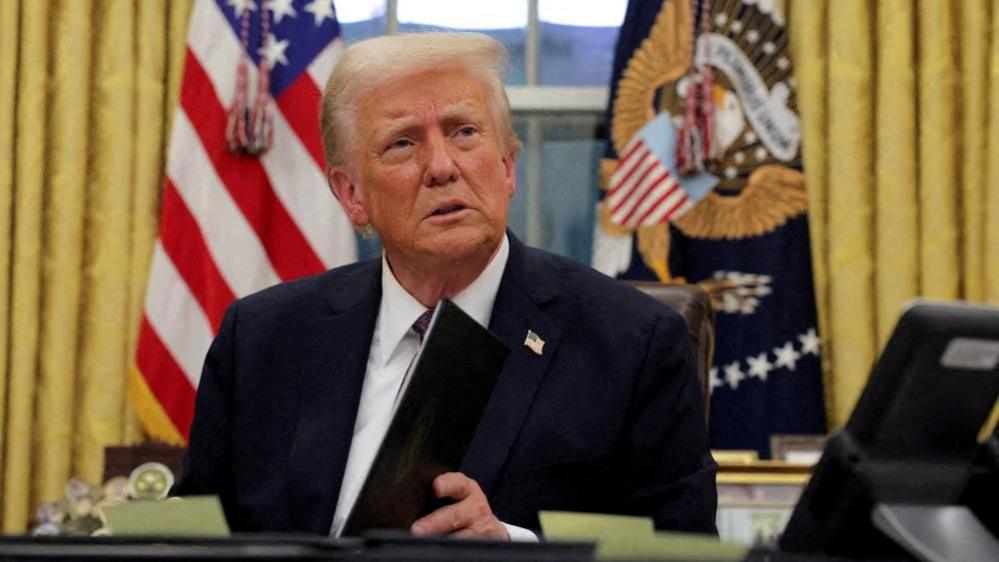
- Published
A federal judge in Seattle has temporarily blocked Donald Trump's attempt to end birthright citizenship in the US.
US District Court Judge John Coughenour called Trump's executive order "blatantly unconstitutional" and issued a restraining order blocking it from going into force after a 25-minute hearing on Thursday.
Under a long-standing interpretation of the 14th Amendment to the Constitution, nearly anyone born inside the US is automatically given citizenship.
Trump hopes to end that rule for children born to parents who are in the country illegally or temporarily.
Four states - Washington, Arizona, Illinois and Oregon - asked for the order to be paused while the federal court considers the states' legal challenge.
During arguments, Judge Coughenour asked a lawyer for the Trump administration "where were the lawyers" when the executive order was drafted by Trump's team, and chastised him for his claim that the order is constitutional.
"It boggles my mind," the judge said.
The executive order will be put on hold for 14 days pending further legal proceedings.
Trump, who has issued a range of unilateral actions since returning to the US presidency on Monday, has long vowed to make this particular change.
His executive order called on US government departments and agencies to deny the granting of citizenship to the children of migrants who are either in the US illegally or on temporary visas.
It would have applied to children born on 19 February and onwards, according to legal filings in the case by the Department of Justice (DoJ).
There have been reports that the administration was planning to enforce the order by withholding documents, such as passports, from people it deems ineligible for citizenship.
The judge's order also put a temporary stop to any enforcement of the order by federal agencies.
In their lawsuit, the four states challenging the order argue that the 14th Amendment and US law "automatically confer citizenship upon individuals born in the United States" and that the president does not have the power to amend the Constitution.
They add that if the order is implemented, residents of those states will "suffer immediate and irreparable harm".
"The individuals who are stripped of their United States citizenship will be rendered undocumented, subject to removal or detention, and many will be stateless," the lawsuit states.
Trump's Department of Justice argued that the case brought by the states does not warrant the "extraordinary measure" of a temporary restraining order, but the judge disagreed.
The 14th Amendment, adopted in 1868, states in part: "All persons born or naturalized in the United States, and subject to the jurisdiction thereof, are citizens of the United States".
The DoJ argued that the clause "and subject to the jurisdiction thereof", excludes children of non-citizens who are in the US unlawfully, and added that the order is "an integral part" of Trump's goal to address the country's "broken immigration system and the ongoing crisis at the southern border".
There were 255,000 children born to undocumented mothers in the US in 2022, according to the states' legal challenge.
The amendment has been interpreted by courts as granting citizenship to anyone born on US territory, with very limited exceptions such as the children of foreign diplomats.
Without a direct amendment to the US Constitution - which requires a two-thirds vote in both chambers of Congress, plus the approval by America's states - experts say the issue is likely to be ultimately decided by the courts.
Lawyers for the federal government said they planned to appeal the ruling, and that they expected the case to end up in front of the US Supreme Court.
The birthright citizenship amendment dates back to the days after the US Civil War, and settled the question of the citizenship of freed, American-born former slaves.
Lane Polozola, a lawyer for Washington state, argued in court that Trump's order would bring the nation back "to one of our... darkest chapters".
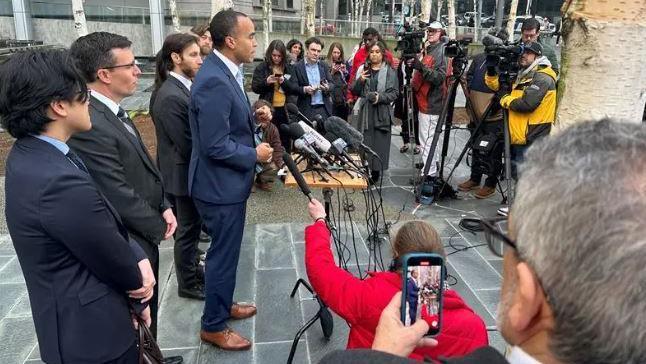
Washington state Attorney General Nicholas Brown cheered the ruling in a news conference outside of court
Judge Coughenour, who paused the executive order, has served in the Western District of Washington court since 1981 after he was appointed by then-president Ronald Reagan, a Republican.
A group of 18 other Democratic-led states, along with the District of Columbia and the city of San Francisco, have filed a separate challenge to the executive order.
Trump's order is also facing a legal challenge from the American Civil Liberties Union (ACLU).
Related topics
- Published22 January
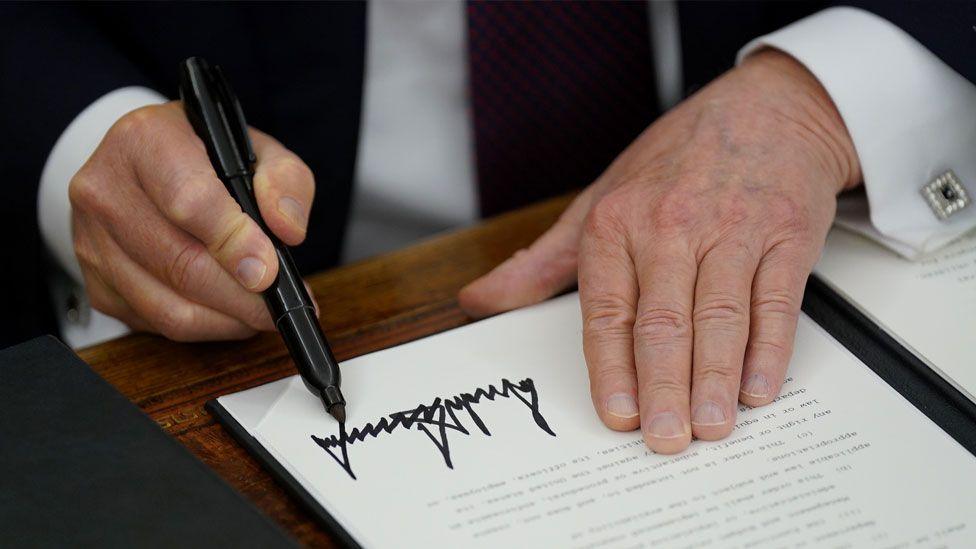
- Published13 May
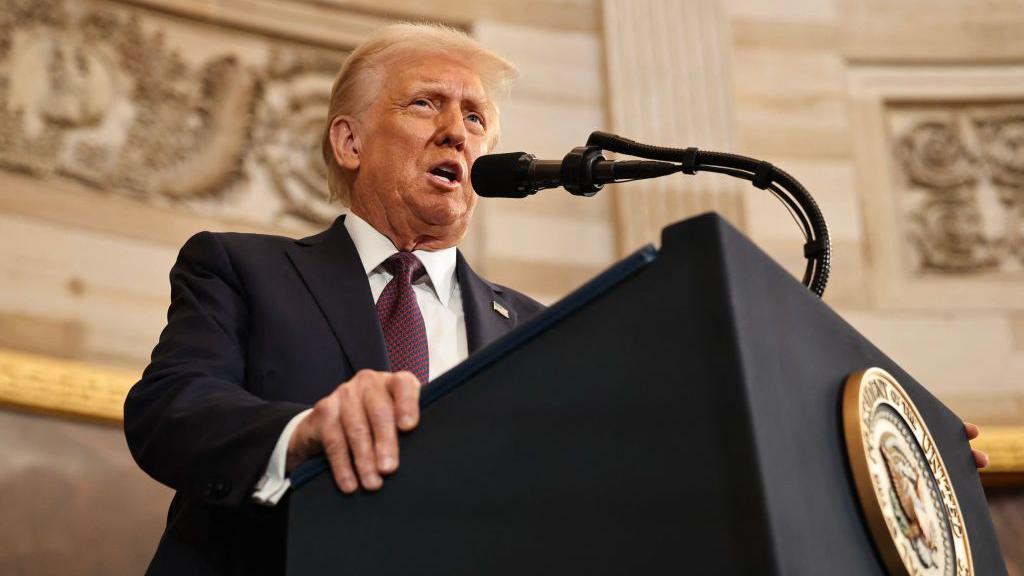
- Published22 January
